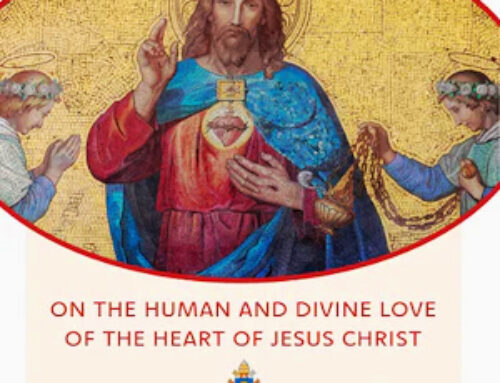(This article originally appeared in the TAU-USA Fall Issue #107 first part pages 4-6)
General Observations
-
Themes
 The five centenaries are part of a single thematic Centenary, which will develop gradually and harmoniously according to the chronology of the events celebrated.
The five centenaries are part of a single thematic Centenary, which will develop gradually and harmoniously according to the chronology of the events celebrated.
The key themes proposed for the celebration of the centenaries are considered from multiple perspectives, present in each celebration. These will specifically refer to the theological dimension (our being in Christ); the anthropological dimension (our being brothers and sisters); the ecclesiological dimension (our being in communion); and the sociological dimension (our being in the world).
The documents of the Magisterium of the Church, understood from the Franciscan charismatic perspective, are used to provide a theological baseline. The celebration of each centenary is a promising opportunity for the Franciscan Family to support the ecclesial reform that the Pope is carrying out in his pontificate.
The basic purpose for celebrating the centenaries is to direct our gaze to the future and to strengthen our Franciscan identity and charism.
-
Recipients
First, the proposed themes are to be worked on and developed by our brothers and sisters all over the world. Therefore, the integration of all cultures must be standard practice.
The celebration of the centenaries is undoubtedly a good occasion to make the Franciscan Family visible in its entirety. Therefore, it would be very fitting for all activities and initiatives, at the national and/or regional level, to be coordinated by a commission representing the entire Franciscan Family.
Ad intra and Ad extra: The centenaries are not intended to have a positive impact only within the Franciscan Family. Imagination and creativity must be brought to bear so that the centenaries impact out-wardly upon non-ecclesial social and cultural environments.
-
Methodology
We have already indicated the importance of the theological, anthropological, ecclesiological and sociological dimensions, which, as cross cutting components, should guarantee unity and thematic continuity during this multi-year celebratory event. All of these dimensions play an important role in the ad intra programs, but perhaps the anthropological and sociological dimensions could be further enriched in the ad extra programs.
There is a risk that these proposals could remain too focused on the theoretical and intellectual aspects. Therefore, it would be appropriate to define, for each of the proposed themes, what objective is being pursued and to recommend an activity, so that the experiential and practical dimensions can be made more dynamic.
The activities are suggested in a very general way, since they should be made more concrete based on various real-life contexts.
The themes herein can be further explored and developed through lectures, meetings, Chapters of Mats, exhibitions, pilgrimages, mission experiences, etc.
Celebrating the Centenary as a Franciscan Family
Tres ordines hic ordinat: primumque fratrum nominat mino- rum pauperumque fit dominarum medius sed poenitentum tertius sexum capit utrumque.
Three were the Orders he arrayed: The Friars Minor he called the first; and the Poor Ladies were next, becoming the middle Order. Then thirdly came the Penitents, comprising men and women.
This is how we would have prayed the antiphon for Morning Prayer in the ancient Rhythmic Office by Julian of Speyer. He wrote it in 1235, for the canonization of St. Francis of Assisi. The antiphon mentions the direct filial relationship between the Saint and the three Orders. The first he called the Friars Minor, the second he called the Poor Ladies, and the third was for men and women who wanted to follow Jesus on the path of penance according to Francis. In the antiphon, verb ordinat is chosen to highlight the style of organization that belongs to the Franciscan Family. It is not reducible to a juridical structure, but rather indicates the reciprocity inherent in the bond of community, which is typical of the Franciscan charism.
The gift that St. Francis received from the Divine Giver is most fully realized in its complementarity and lively reciprocal communion. This is a motivating force in the lives of “all those who love the Lord with their whole heart” (First Version of the Letter to the Faithful 1, FF 178/1). Therefore, as a Franciscan Family, we invite everyone who is attracted to the evangelical beauty of the Poverello (cf. Laudato si’ 10) to join us in celebrating these centenaries. The centenaries offer us a valuable opportunity to invigorate the richness of our charism with a prophetic vision toward the future.
Moreover, we want to celebrate them in keeping with the mindset that comes with this gift we have received. Indeed, the hagiographic sources tell us that Francis of Assisi died naked, with nothing of his own: “He asked to be taken to Saint Mary of the Portiuncula so that he might yield up the spirit of life…he threw himself in fervor of spirit totally naked on the naked ground” (Major Legend 14:4, FF 1240). His whole life was a journey of living sine proprio, that is, a life of giving back, from the beginning of his conversion, because only the man who keeps nothing for himself, but gives all of himself, is able to walk in fraternity, guided by his desire for the Supreme Good: “Let us refer all good to the Lord, God Almighty and Most High, acknowledge that every good is His, and thank Him, “from Whom all good comes, for everything.” (Earlier Rule 17:17, FF 49). The Poverello recognized that everything in his life was a free gift of God’s love, as he himself affirms in his Testament: “The Lord gave me thus to begin doing penance…the Lord gave me some brothers… the Most High Himself revealed to me that I should live according to the pattern of the Holy Gospel.” (Testament 1-14, FF 110-116). He not only received divine gifts but also chose to give them back, so today, eight hundred years later, we can celebrate these five centenaries as a Franciscan Family. The centenaries invite us to live according to the concept of receiving love and transforming it into self-giving and giving back to others.
Let us begin, sisters and brothers, because now it is up to us to give back to others the gifts that Brother Francis gave to us.
Next two Posts will be Celebrating the Rule 1223-2023; Celebrating Christmas at Greccio 1223-2023.





I think this special event it’s important we need to plant seeds for our younger generation . We need to understand and so pray for a fruitful success, all for the Glory of God.
[…] Part 1 Posted January 2, 2023 pages 4-6 […]